The culture of Iran, also known as the culture of Persia, is one of the oldest in the world. Owing to its dominant geopolitical position and culture in the world, Iran has directly influenced cultures and peoples as far away as Italy, Macedonia, and Greece to the West, Russia to the North, the Arabian Peninsula to the South, and South and East Asia to the East. Thus an eclectic cultural elasticity has been said to be one of the key defining characteristics of the Persian spirit and a clue to its historical longevity. Furthermore, Iran's culture has manifested itself in several facets throughout the history of Iran as well as the Caucasus, Central Asia, Anatolia, and Mesopotamia.
The article uses the words Persian and Iranian interchangeably, sometimes referring to the language and its speakers, and other times referring to the name of pre-20th century Iran, a nomenclature which survives from western explorers and orientalists. They are not the same and the cultures of the peoples of Greater Persia are the focus of this article.
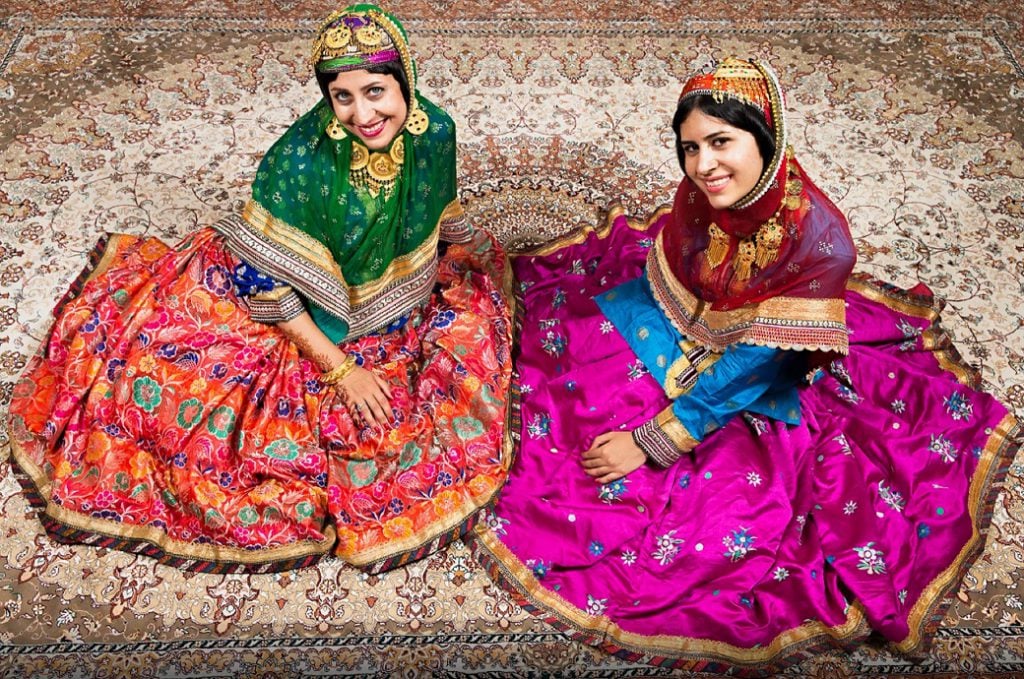
Iranian Society & Culture
Islam and Shi'ism
Islam is practiced by the majority of Iranians and governs their personal, political, economic and legal lives. Islam emanated from what is today Saudi Arabia. The Prophet Muhammad is seen as the last of God's emissaries (following in the footsteps of Jesus, Moses, Abraham, etc.) to bring revelation to mankind. He was distinguished with bringing a message for the whole of mankind, rather than just to a certain people. As Moses brought the Torah and Jesus the Bible, Muhammad brought the last book, the Quran. The Quran and the actions of the
Prophet (the Sunnah) are used as the basis for all guidance in the religion.
Among certain obligations for Muslims are to pray five times a day - at dawn, noon, afternoon, sunset, and evening. The exact time is listed in the local newspaper each day. Friday is the Muslim holy day. Everything is closed. Many companies also close on Thursday, making the weekend Thursday and Friday.
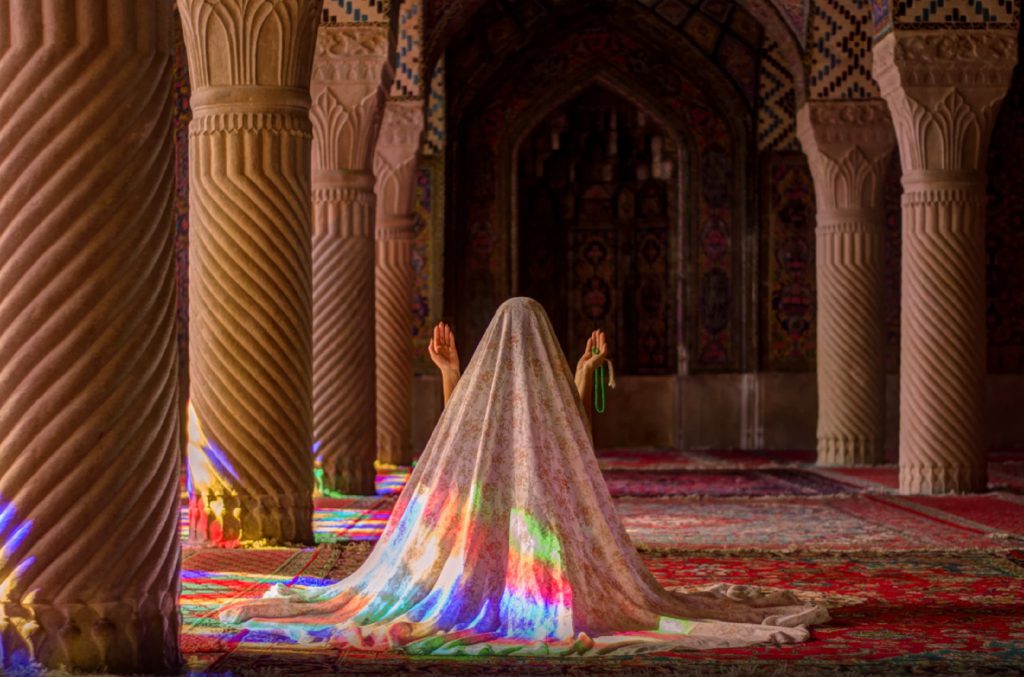
During the holy month of Ramadan, all Muslims must fast from dawn to dusk and are only permitted to work six hours per day. Fasting includes no eating, drinking, cigarette smoking, or gum chewing. Expatriates are not required to fast; however, they must not eat, drink, smoke, or chew gum in public. Each night at sunset, families, and friends gather together to celebrate the breaking of the fast (iftar). The festivities often continue well into the night. In general, things happen more slowly during Ramadan. Many businesses operate on a reduced schedule. Shops may be open and closed at unusual times.
Iran is the only country of all Muslim countries that is officially a Shi'ite state. The others being considered Sunni states.
Family Values
- In Iran, the family is the basis of the social structure.
- The concept of family is more private than in many other cultures. Female relatives must be protected from outside influences and are taken care of at all times. It is inappropriate to ask questions about an Iranian's wife or other female relatives.
- Iranians take their responsibilities to their family quite seriously.
- Families tend to be small, only 1 or 2 children, but the extended family is quite close.
- The individual derives a social network and assistance in times of need from the family.
- Elderly relatives are kept at home, not placed in a nursing home.
- Loyalty to the family comes before other social relationship, even business.
- Nepotism is considered a good thing since it implies that employing people one knows and trusts is of primary importance.
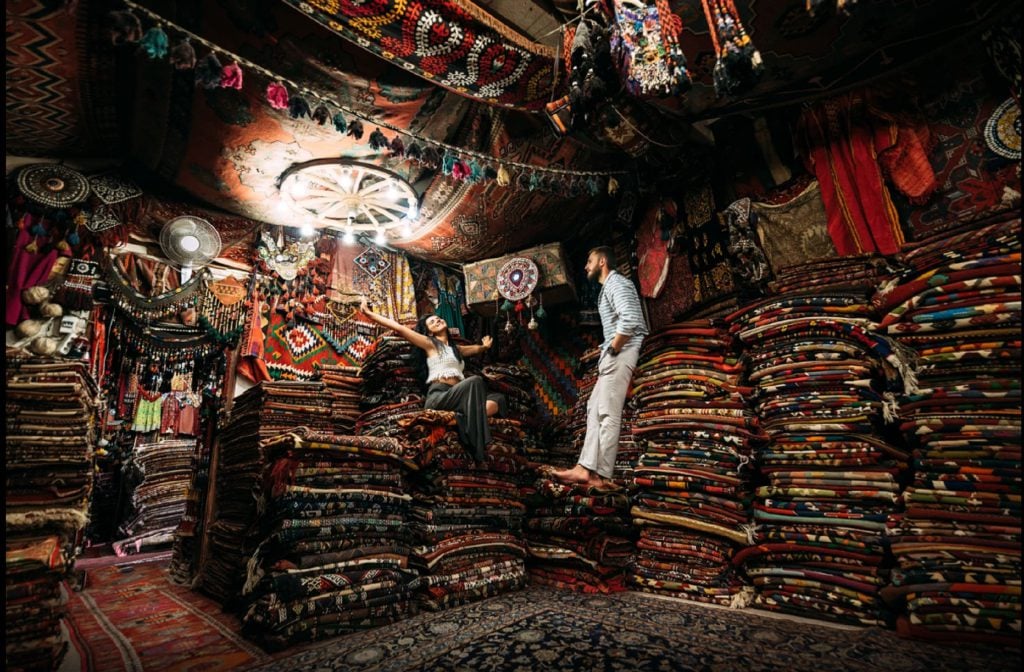
Taarof (Iranian Politeness)
- Taarof is a system of politeness that includes both verbal and non-verbal communication.
- Iranians protest compliments and attempt to appear vulnerable in public.
- They will belittle their own accomplishments in an attempt to appear humble, although other Iranians understand that this is merely courtesy and do not take the words at face value.
- In adherence to taarof, if you are ever offered something, like a tea or sweet, even if you want it, at first declined it until their insistence becomes greater.
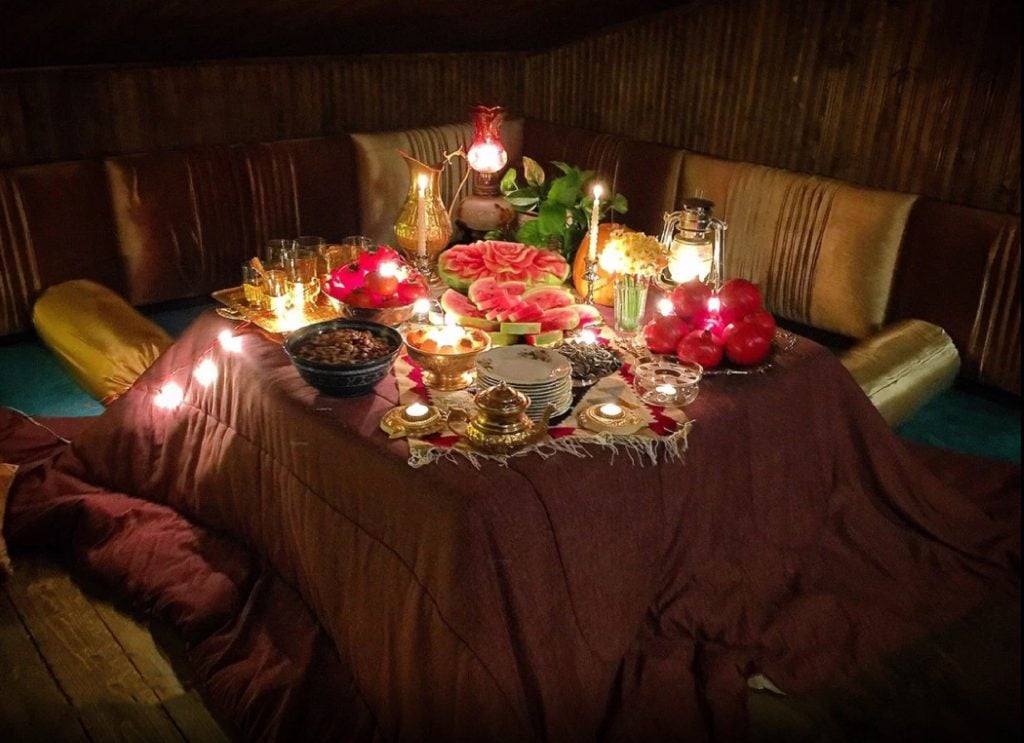
Etiquette and Customs in Iran
Meeting Etiquette
- Introductions are generally restricted to members of the same sex since men and women socialize separately.
- Greetings tend to be affectionate. Men kiss other men and women kiss other women at social events. If they meet on the street, a handshake is the more common greeting
- The most common greeting is "salaam alaykum" or more simply "salaam" (peace).
Gift Giving Etiquette
- Iranians give gifts at various social occasions such as returning from a trip or if someone achieves a major success in their personal or business life.
- On birthdays, businesspeople bring sweets and cakes to the office and do not expect to receive gifts.
- It is common to give monetary gifts to servants or others who have provided services during the year on No Ruz (The Iranian New Year). Money should be new bank notes or gold coins.
- If you are invited to an Iranian's house, bring flowers, or pastry to the hosts. When giving a gift, always apologize for its inadequacy.
- Gifts should be elegantly wrapped - most shops will wrap them for you.
- Gifts are not generally opened when received. In fact, they may be put on a table and not mentioned.
Dining Etiquette
- If you are invited to an Iranian's house:
- Check to see if the host is wearing shoes. If not, remove yours at the door.
- Dress conservatively.
- Try to arrive at the invited time. Punctuality is appreciated.
- Show respect for the elders by greeting them first.
- Check to see if your spouse is included in the invitation. Conservative Iranians do not entertain mixed-sex groups.
- Expect to be shown in the guests' room. It is usually lavishly furnished with European furniture.
- Shake everyone's hand individually.
- Accept any offer of food or drink. Remember to do 'taarof'.
- Table manners: Iranians are rather formal. Although some meals in the home are served on the floor and without eating utensils, it does not indicate a lack of decorum. In more modern homes, meals are served on a dining table with place settings.
- Wait to be told where to sit.
- Eat only with the right hand.
- Try a bit of everything that is served.
- Meals are generally served family-style.
- Most tables are set with a spoon and fork only.
- There is often more food than you can eat. Part of Iranian hospitality is to shower guests with abundance.
- Expect to be offered second and even third helpings. Initial refusals will be assumed to be polite gestures (taarof again!) and are not taken seriously.
- Leave some food on your plate when you have finished eating.
- Restaurants generally have two sections - "family" where women and families dine and "men only". Tips of between 10 and 15% are appreciated in hotel restaurants.
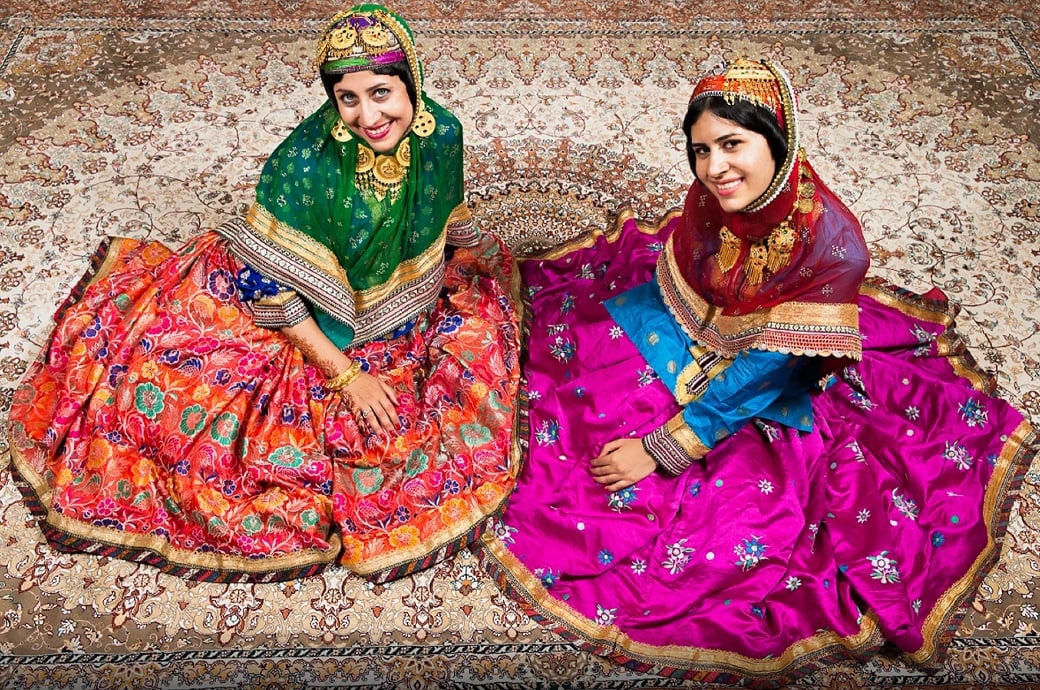

 During the holy month of Ramadan, all Muslims must fast from dawn to dusk and are only permitted to work six hours per day. Fasting includes no eating, drinking, cigarette smoking, or gum chewing. Expatriates are not required to fast; however, they must not eat, drink, smoke, or chew gum in public. Each night at sunset, families, and friends gather together to celebrate the breaking of the fast (iftar). The festivities often continue well into the night. In general, things happen more slowly during Ramadan. Many businesses operate on a reduced schedule. Shops may be open and closed at unusual times.
Iran is the only country of all Muslim countries that is officially a Shi'ite state. The others being considered Sunni states.
Family Values
During the holy month of Ramadan, all Muslims must fast from dawn to dusk and are only permitted to work six hours per day. Fasting includes no eating, drinking, cigarette smoking, or gum chewing. Expatriates are not required to fast; however, they must not eat, drink, smoke, or chew gum in public. Each night at sunset, families, and friends gather together to celebrate the breaking of the fast (iftar). The festivities often continue well into the night. In general, things happen more slowly during Ramadan. Many businesses operate on a reduced schedule. Shops may be open and closed at unusual times.
Iran is the only country of all Muslim countries that is officially a Shi'ite state. The others being considered Sunni states.
Family Values
 Taarof (Iranian Politeness)
Taarof (Iranian Politeness)


Comments & Questions